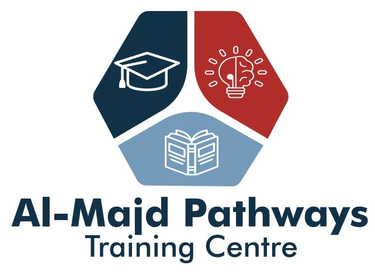
Disaster Recovery and Business Continuity Training
£5250.00
INTRODUCTION
Business continuity management (BCM) is crucial for ensuring ongoing business operations in the face of disasters. It is essential for business survival. Proactive risk management through Business Continuity Planning (BCP) and Disaster Recovery Planning (DRP) based on established management processes ensures sustainability. BCM safeguards your personnel, maintains essential business processes, and preserves your reputation.
Some risks cannot be eliminated, so understanding how to manage them without disrupting your business is essential. Organizations implement disaster recovery and Business Continuity Plans (BCP) to prepare for potential disruptive events. Both processes are equally important as they provide detailed strategies for continuing business operations after severe interruptions and disasters.
During a disaster, the business continuity plan helps the organisation function operationally. In contrast, the Disaster Recovery Plan (DRP) outlines the company's preparedness for the disaster and the actions needed to restore operations.
This Disaster Recovery & Business Continuity training course offers a comprehensive understanding of what is necessary to prepare your business and organisation to manage major incidents or disasters that could adversely impact day-to-day operations. The workshop adheres to best practice frameworks to ensure that your response and recovery efforts are successful.
TRAINING OBJECTIVES
This Training course aims to enable participants to achieve the following objectives:
Understand BCP and DR
Recognise the financial and operational benefits of BCP and DR
Develop an effective BCP Framework
Evaluate your existing BCP and management maturity level
Identify gaps in your Disaster Recovery Planning
Implement an effective process to ensure your business services are available during major incidents and disasters
Expose participants to existing and emerging BCM practices
Examine the "why, what, when, how, and who" aspects of BCM
Establish the relevance of BCM and BCM practices in an enterprise
Develop practical steps towards BCM management systems in your enterprise
Demonstrate how to plan, test, and implement business continuity and disaster recovery
WHO SHOULD ATTEND
This training course is suitable for:
Business Continuity Managers
Disaster Recovery Managers
Service Continuity Managers and Process Owners
Risk Managers
Individuals who need a better understanding of how an organisation can use BCP and DR Continuity Management to enhance service quality
TRAINING APPROACH
The Disaster Recovery & Business Continuity Training course will combine presentations with interactive practical exercises, supported by video materials, activities, and case studies. Delegates will be encouraged to actively participate, applying stress management principles to their specific workplace needs.
This workshop provides a comprehensive understanding of how good BCP and DR planning create a comprehensive recovery toolbox, ensuring your business or organisation is fully prepared for the unexpected.
TRAINING OUTLINE
Day 1: Planning
Business Continuity Planning
Emergency Planning & Crisis Management
Disaster recovery planning
BCM Best Practices – ISO Standards
ISO 22301 BCM Standard & BCM
ISO 31000 Risk Management & BCM
Day 2: Disaster Risk Management (part 1)
Types and Scope of DRM plans
Disaster Risk Management concepts and terminology
DRM systems and structures – international, regional, and national
Community-based disaster risk management
Understanding Disaster Risk Reduction
Day 3: Disaster Risk Management (part 2)
Risk management strategies and plans
Disaster response plans, disaster recovery planning, business continuity planning
Plan rehearsals-simulation exercises (specific focus on Contingency Plan)
Early warning systems- components, structure, and operationalisation
Plan Activation and review
Exercises: Developing DRM plans
Day 4: Understanding the Perceived Risks
Understanding risk
Risk analysis process- tools and techniques
Hazard mapping and ranking
Vulnerability and capacity analysis
Developing and implementing Standard Operation Procedures (SOPs)
Exercises: Hazard mapping and ranking, BCP development
Day 5: Ethical Factors in Crisis and Emergency Leadership
Caring for subordinates and their families
Self-care for leaders
Responsibilities to authorities, the public, and/or victims
Managing and leveraging the media
After-action review and lessons learned processes
Preparing for future crises or emergencies
Format: On-site
Language(s): English
Duration: One week
Certificate of Completion: Upon successful completion of the course, participants will receive a Certificate of Completion from Al-Majd Pathways Centre (APC).
Get in touch with us today.
Follow
Sign-up for our newsletter
0044 7466410010
©2025 All rights reserved.
